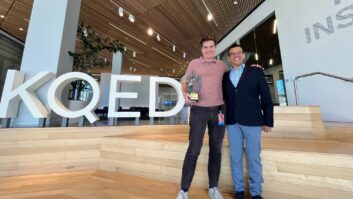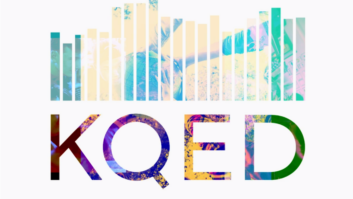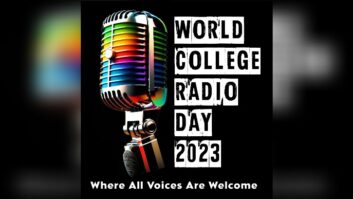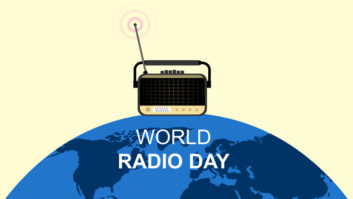“Since its origins, radio has been shown to be the most useful medium of social communication for humanity.”
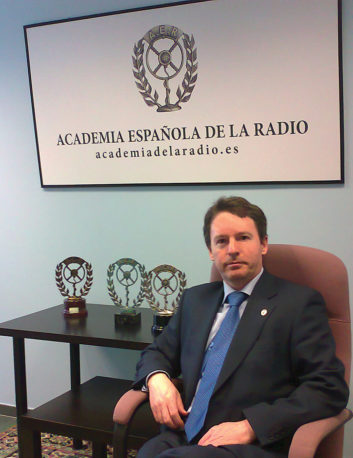
So states the home page of World Radio Day, celebrated in February of each year. An offshoot, the Academy of Radio Arts & Sciences of America, seeks to raise awareness of World Radio Day in the United States.
Radio World asked Jorge Álvarez, president of the Spanish Academy of Radio, about the effort.
Radio World: What is the history of World Radio Day and why was it created?
Jorge Álvarez: It began when I realized that the United Nations had established World Television Day and World Press Freedom Day, but that there was not a World Radio Day.
I sent a letter to the director general of UNESCO, Kōichirōō Matsuura, in January 2008, requesting the establishment of World Radio Day. The response from UNESCO was positive, indicating that the government of Spain would have to make the formal proposal.
So the Spanish Academy of Radio collaborated with the Permanent Delegation of Spain to UNESCO, for three years, to prepare a proposal to be presented at the 187th Session of the UNESCO Executive Committee in Paris in September 2011.
Initially, we choose October 30 as World Radio Day as a tribute to the famous radio broadcast of 1938, “The War of the Worlds,” which had the support of a large number of radio broadcasting associations of the five continents. However, after an intense debate of the 58 countries represented in the executive board of UNESCO, the date chosen was February 13, the anniversary of the birth of United Nations Radio in 1946.
In November 2011, the General Conference of UNESCO, formed by 96 member states, finally proclaimed February 13 as World Radio Day. In 2012, the 67th General Assembly of the United Nations endorsed this proclamation, thanks to the proposal of the Permanent Mission of Spain to the United Nations, with the collaboration of the Spanish Radio Academy.
RW: What role does the academy play?
Álvarez: The Spanish Academy of Radio was the promoter of the World Radio Day initiative and made a great effort for more than three years collecting support from radio stations around the world and from the different permanent delegations at the UNESCO executive board, to get the vote in favor of the establishment of World Radio Day.
In addition, the academy took the initiative to create the International Committee of World Radio Day, formed by the most important international organizations of broadcasting of the five continents. We’re honored that ITU is represented too.
For more information and to download free photos and documents, you can visit www.academiadelaradio.es/wrd/history.html and https://premiosradiotelevision.com/index.php/2018/01/19/origen/.
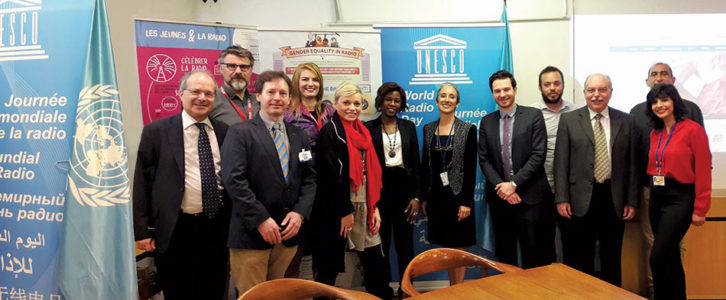
RW: And what is the purpose of the World Radio Day Committee?
Álvarez: Shortly after UNESCO’s proclamation of World Radio Day, the Spanish Radio Academy created the World Radio Day Committee, which held its first official meeting on Sept. 11 in Madrid at the International Press Center. One year later, the committee hosted another meeting in Madrid with the participation of UNESCO’s General Director of Communication, Janis Karklins. In 2013, the committee along with 16 organizations met in Paris at Radio France Headquarters.
The purpose of this committee is to collaborate with UNESCO every year on the organization of the World Radio Day celebrations, proposing the slogan of celebration and the various activities to be developed. Usually, this committee meets twice a year at the UNESCO headquarters in Paris. I was the first president of this committee; since 2014, the it is coordinated by Giacomo Mazzone, director of institutional relations of the European Broadcasting Union.
RW: Describe the effort to develop awareness of World Radio Day in the United States.
Álvarez: The academy considers it very important to promote events to celebrate World Radio Day in the United States.
Each year the official WRD website, worldradioday.org, incorporates a world map where is possible to record the celebrations and events planned by radio stations and institutions. We realized that the United States recorded few events and so the academy wanted to start a promotion in this country, especially when radio stations in the Spanish language are increasingly important.
In 2018 the Academy awarded the WRD prize to radio station WURN, “Actualidad 1040 AM” in Miami, Florida. The prize is sponsored by international equipment manufacturer AEQ. This was the most important World Radio Day event held in the U.S. that year.
RW: You recently presented the World Radio Day Award to the National Association of Broadcasters.
Álvarez: The NAB was one of the broadcasting organizations that supported the academy in its proposal to UNESCO to establish World Radio Day. In February I visited NAB headquarters in Washington, along with with my communication director Fátima Estramiana, to present the award to Sen. Gordon Smith. The event was attended as well by the ambassador of Spain in Washington, Mr. Santiago Cabanas.
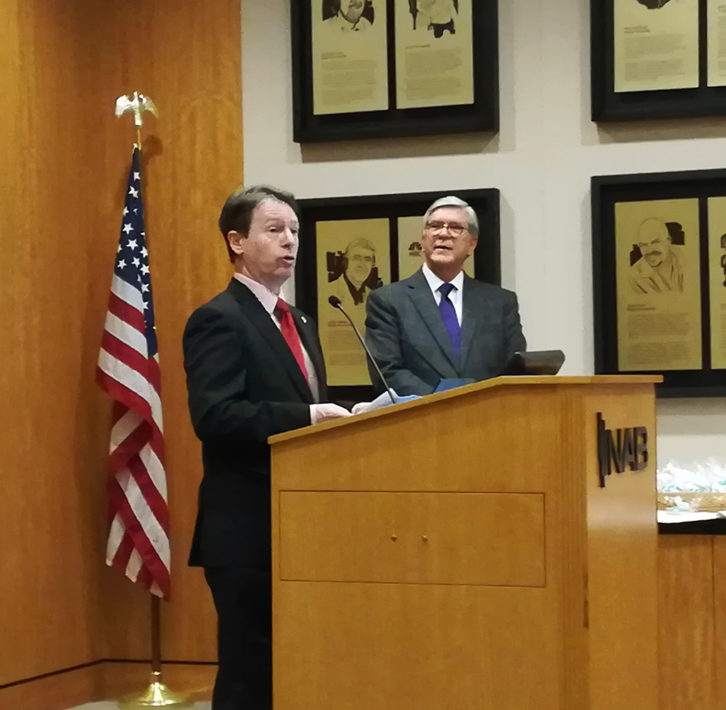
RW: What actions would you like American radio organizations to take in the future? What else should we know?
Álvarez: I would like radio organizations and any radio professional to join the Academy of Radio Arts & Sciences to work closely together in the World Radio Day celebrations in the United States. For more information you can visit the website, radioacademy.us.
At this time, the Academy of Radio Arts and Sciences is forming a jury of radio professionals to award the World Radio Day Award 2020 on Feb. 13; the jury is being coordinated by Frank Montero, a prestigious communications attorney based in Washington. Prospective judges are encouraged to apply by emailing [email protected].
WORLD RADIO DAY COMMITTEE
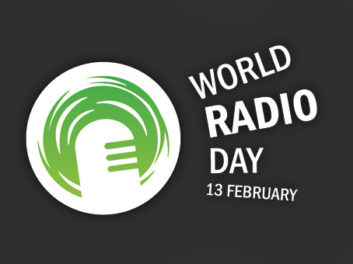
The 19 members of the WRD Committee are the Asia-Pacific Broadcasting Union (ABU); Association of European Radios (AER); Asia Pacific Institute for Broadcasting Development (AIBD); World Association of Community Radio Broadcasters (AMARC); Arab States Broadcasting Union (ASBU); African Union of Broadcasting (AUB/UAR); Bangladesh NGOs Network for Radio and Communication (BNNRC); Caribbean Broadcasting Union (CBU); Permanent Conference of Mediterranean Audiovisual Operators (COPEAM); European Broadcasting Union (EBU/UER); Egta; International Association of Broadcasting (IAB); Islamic Broadcasting Union (IBU); International Telecommunication Union (ITU); International Organization of the Francophonie (OIF); Public Media Alliance (PMA); Spanish Radio Academy; United Nations Educational, Scientific and Cultural Organization (UNESCO); International Radio and Television Union (URTI).

